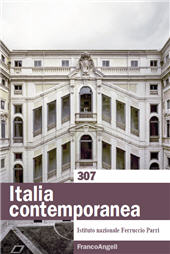Archeologia d'una riforma : il diritto delle mogli al mantenimento e la Corte costituzionale (sentenza 133/1970)
71-105 p.
Il saggio ripercorre il dibattito che, nel secondo dopoguerra, accompagna l'interpretazione dell'articolo 29 della Costituzione in relazione al matrimonio. La norma per un verso afferma "l'eguaglianza morale e giuridica dei coniugi" e, per l'altro, ammette che la legge possa limitarla "a garanzia dell'unità familiare". Attorno a questa antinomia ruota la persistenza di un assetto familiare gerarchico, previsto dal Codice civile del 1942. A partire da una decisione della Corte costituzionale del 1970, che interpreta l'eguaglianza come precondizione dell'unità, se ne rintraccia l'evoluzione nel decennio precedente, in rapporto alle istanze politiche di riforma del diritto di famiglia. [Testo dell'editore].
The essay examines the debate surrounding the interpretation of Article 29 of the Constitution in relation to marriage in Republican Italy. On the one hand, the norm affirms "the moral and legal equality of spouses", while, on the other hand, it allows the law to limit this equality in order "to guarantee family unity". This antinomy legitimises the persistence of a hierarchical family structure, provided for in the Civil Code of 1942. The article moves from an analysis of the 1970 Constitutional Court's ruling that interpreted equality as a precondition of unity and traces its development over the preceding decade in connection with political efforts to reform family law. [Publisher's Text].
Is part of
Italia contemporanea : 307, 1, 2025-
Articles from the same issue (available individually)
-
Information
ISSN: 2036-4555
DISCIPLINES
KEYWORDS
- Corte costituzionale, riforma del diritto di famiglia, Codice civile, articolo 29 della Costituzione, eguaglianza dei coniugi, storia della famiglia
- Constitutional Court, family law reform, Civil Code, Article 29 of the Constitution, equality of spouses, history of family


